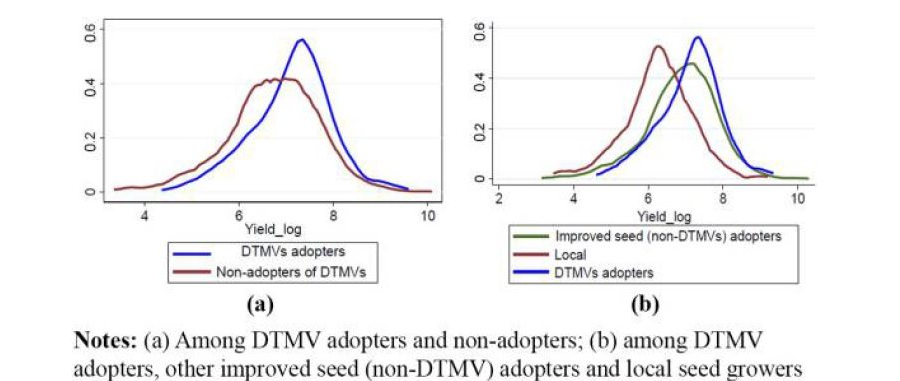Productivity and production risks affect the use of agricultural production practices and inputs, particularly in developing countries. This paper aims to investigate the effects of adopting drought-tolerant maize varieties (DTMVs) on farm productivity,yield variance and downside risk exposure of maize growing households of Zambia.
The study revealed that DTMV adoption increases maize yield by 15 per cent and reduces the risk of crop failure : reducing yield variance by 38 percent and exposure to downside risk by 36 percent.
This study establishes the benefits of DTMV adoption in Zambia with regards to productivity, yield stability and downside risk in the face of climate change. Results from this study underscore the need for more concerted efforts to scale-out DTMVs for both maize productivity enhancement and for risk mitigation against weather shocks.

